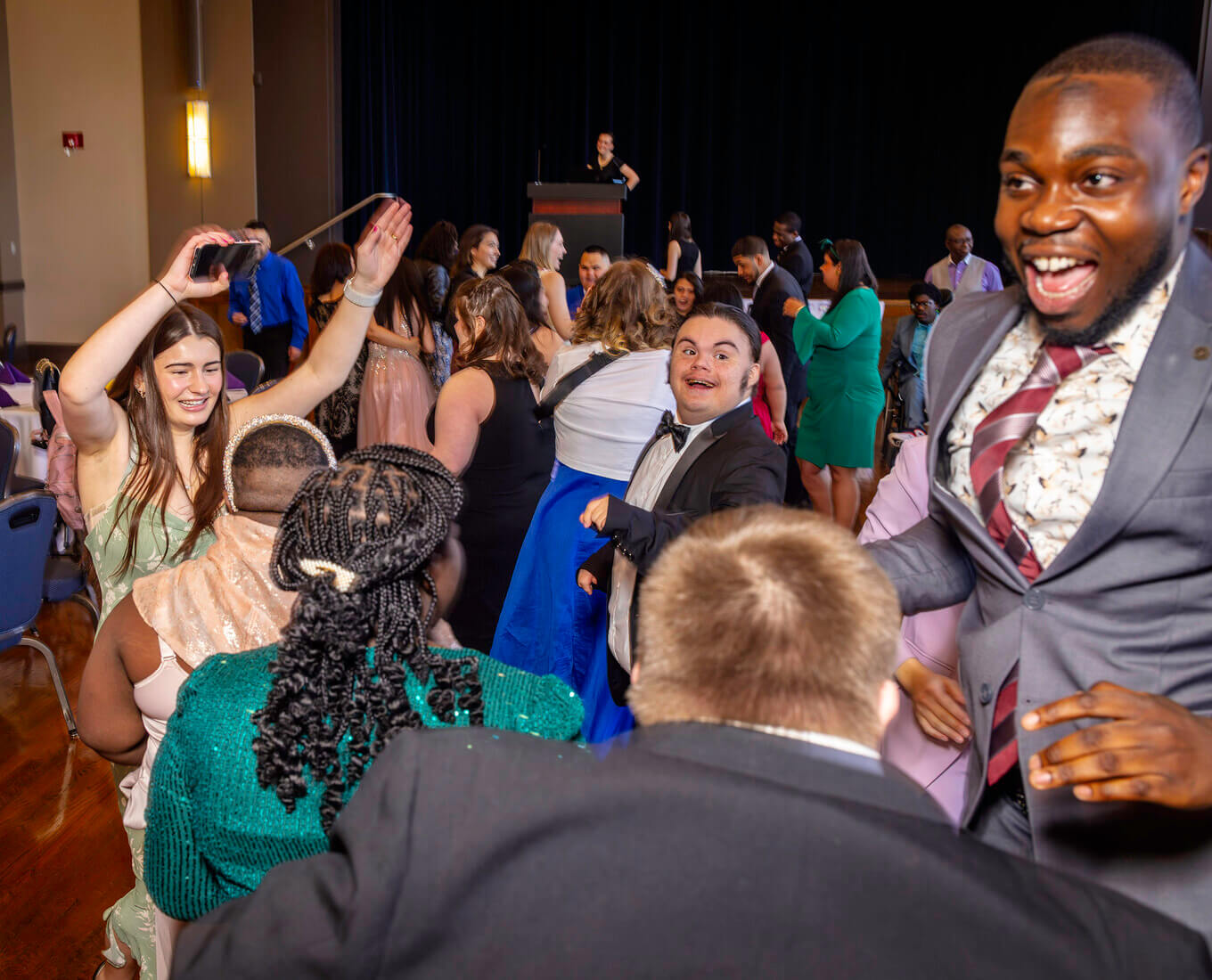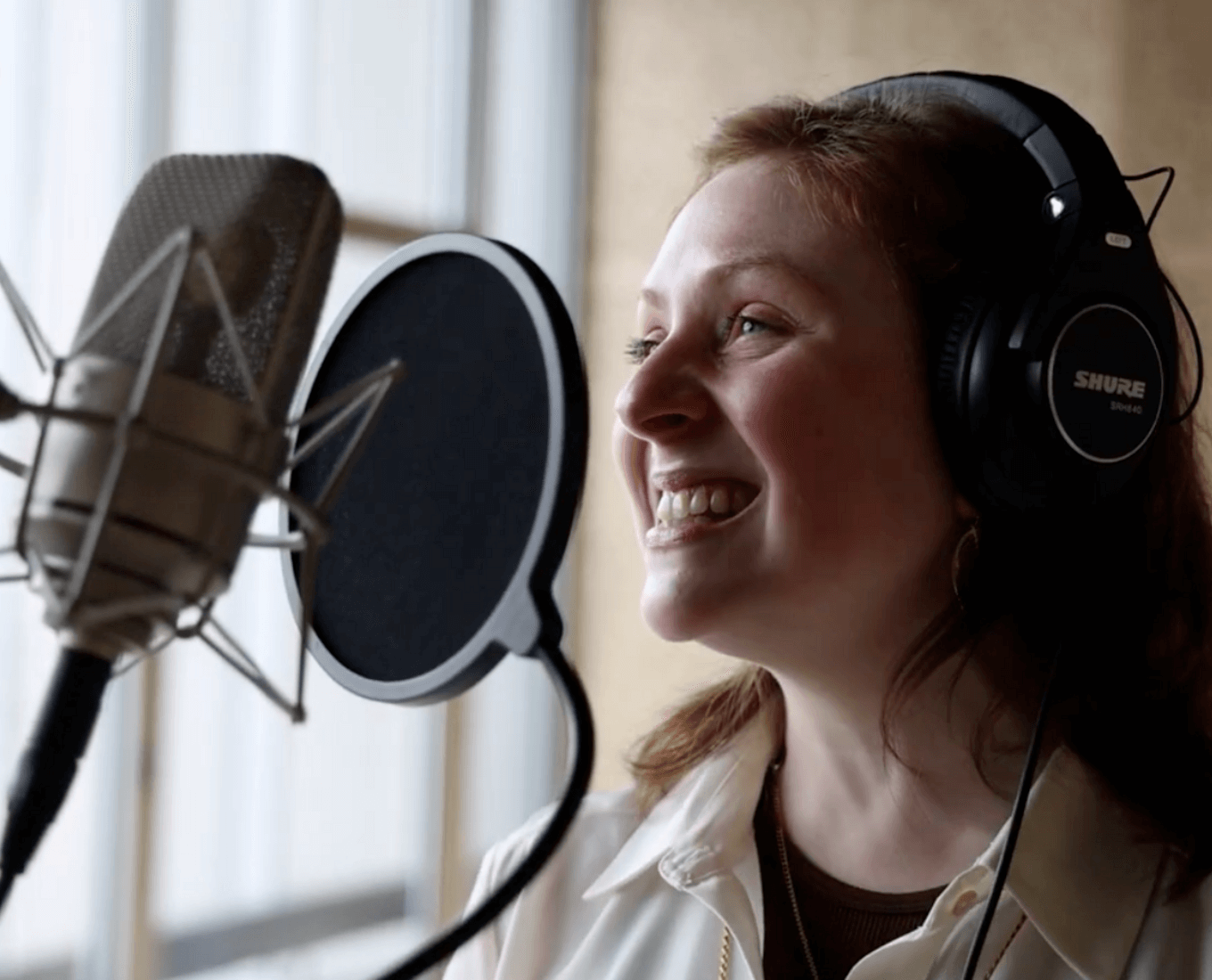
The College of the Holy Cross has welcomed eight new faculty members to tenure-track positions for the 2018-19 academic year. They will each join a different department: biology, chemistry, political science, religious studies, classics, mathematics, psychology and history. The new faculty members bring with them a breadth of expertise on a variety of topics, from studying fruit flies for brain function to looking at how the Declaration of Independence and U.S. Constitution influence the practice of modern politics.
Learn a bit more about the new faculty below.
.boxi {
min-height:300px;
padding-bottom:15px;
margin-bottom:10px;
}
Alexis Hill, assistant professor of biology
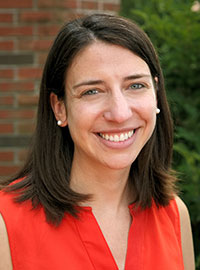
Alexis Hill earned a B.A. in biochemistry and M.S. in chemistry from the University of Pennsylvania, and a Ph.D. in neurobiology from Columbia University. Prior to Holy Cross, she both completed her postdoctoral fellowship and taught at Washington University in St. Louis.
What excites you most about joining the faculty at Holy Cross?
I'm excited about the amazing environment, created by both students and faculty. In my first few weeks here, the students have already surpassed my high expectations, in that they are eager and engaged, in both my introductory biology and my advanced neurobiology courses. The faculty and administration here have created a supportive environment for research and for innovative approaches to education.
How do you see your work interacting with the world?
In my research, I use fruit flies to study genes that are important for proper brain function, many of which are associated with neurologic and psychiatric disease. While the brains of flies and humans are very different, the cells that make up the brain are very similar. Here at Holy Cross, I am currently setting up a neuroscience research lab, where I will have students performing experiments with me, which will contribute to the broad understanding of how brains function, in both healthy and disease states.
Christine Hagan, assistant professor of chemistry
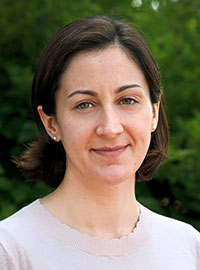
Christine Hagan earned an A.B. in chemistry from Amherst College, an M.Phil. in chemistry from the University of Cambridge and a Ph.D. in chemistry from Harvard University. Prior to Holy Cross, she completed her postdoctoral fellowship at Harvard Medical School and was a teaching fellow at Harvard University.
What excites you most about joining the faculty at Holy Cross?
I'm impressed by the commitment of the faculty in the chemistry department to both teaching and research. The department has a thriving research program for undergraduates, and it encourages students to start thinking like researchers early on by making laboratory experiments the focus of the introductory chemistry courses. I'm drawn to this way of teaching because it is important for students to learn how to identify interesting questions and then figure out how to solve them — regardless of what the students may end up doing in the future.
How do you see your work interacting with the world?
In my research lab, we are trying to identify new strategies for treating bacterial infections. Many of the antibiotics currently used in the clinic are becoming less effective as bacteria develop resistance to them. There is an urgent need for new drugs to treat infections caused by these resistant bacteria. My group is studying the mechanisms bacteria themselves use to kill one another when they encounter competing bacteria in their environment. My hope is that by understanding these bacterial toxin delivery systems, we may identify better ways of overcoming the natural resistance of many disease-causing bacteria to antibiotic therapy.
Alex Hindman, assistant professor of political science
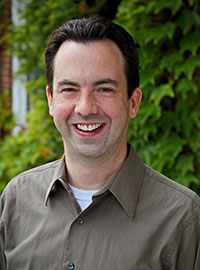
Alex Hindman earned a B.A in political science from Saint Vincent College and an M.A. and Ph.D. in politics from Claremont Graduate University. Prior to Holy Cross, he taught at Morehead State University, Vanguard University and Azusa Pacific University. He taught as a visiting assistant professor in the Holy Cross political science department from 2016 to 2018.
What excites you most about joining the faculty at Holy Cross?
I believe in the mission of a Jesuit, Catholic institution. Holy Cross consistently pursues vexing questions with a spirit of civility and free inquiry that characterizes the best elements of the intellectual life. From the students to the faculty and the staff here, Holy Cross has great people who are committed to learning with, and from, each other. Holy Cross stands out to me as a place where it's possible to engage in the Ignatian search for knowledge among a community of friends and scholars.
How do you see your work interacting with the world?
My work in American government focuses on the Declaration of Independence and the U.S. Constitution. In particular, I look at how the political ideals embodied in these documents influence (or fail to influence) the actual practice of our politics. Through my teaching and my research, I hope to invite others to evaluate the American constitutional tradition's answers to some universal questions of the human condition, particularly how we can both live in a community with others and retain the individual autonomy necessary for human flourishing.
Mahri Leonard-Fleckman, assistant professor of religious studies
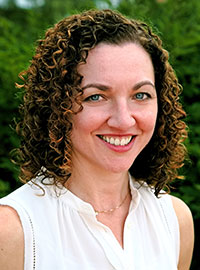
Mahri Leonard-Fleckman earned a B.A. in Spanish and English literature from Washington University in St. Louis, an M.Div. from Union Theological Seminary in New York with a dual focus in Old Testament/Hebrew Bible and religion and education, and a Ph.D. in Hebrew Bible and ancient Near Eastern studies from New York University. Prior to Holy Cross, she taught at Providence College, the University of Scranton, Stonehill College, Clark University and Marymount Upper School of New York.
What excites you most about joining the faculty at Holy Cross?
I am deeply attracted to Holy Cross' unique combination of a strong liberal arts college and a Jesuit mission. I'm equally attracted to the religious studies department, which contains a remarkable breadth of fields and methodological interests and is simply a powerhouse of scholar-teachers. Also, Holy Cross is a true community. I could not imagine a better fit for my own blend of interests and values.
How do you see your work interacting with the world?
My field is Hebrew Bible and ancient Near Eastern studies ("ancient Near East" is synonymous with "Middle East a long time ago"). I believe that knowledge of the ancient Near East is vital for engaging with contemporary Middle Eastern issues, and such knowledge gives us immense and broad insight into politics, society and religion. Depending on how we humans use it, the Bible continues to have immense power to cause harm or good. My desire is to help people gain the tools necessary to read with integrity and use the Bible as a positive force in this world (and perhaps fall in love with it, too!).
Dominic Machado, assistant professor of classics
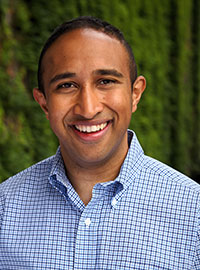
Dominic Machado earned an A.B. in classics and economics from Dartmouth College and a Ph.D. in ancient history from Brown University. Prior to Holy Cross, he taught at Wake Forest University.
What excites you most about joining the faculty at Holy Cross?
Holy Cross calls on faculty members to be more than just teachers. In particular, I am excited to answer the call of providing not just technical instruction to high-achieving students, but of delivering a holistic education aligned with the Jesuit ideals of "cura personalis." I also look forward to participating in the College's mission of fostering social justice that asks each and every one of us to think about and work to improve the world around us.
How do you see your work interacting with the world?
I am personally interested in engaging and expanding the field of classics — long a bastion of the elite in society — to broader audiences and, especially, to underserved minority groups. I have spoken at numerous conferences about how classicists can become more engaged with underserved minority communities and I look forward to continuing this work at Holy Cross. Additionally, my academic research is motivated by what is happening in the world around us. My work on protest and dissent in the Roman world is informed by the ways that we as a modern society react to, write about and process resistance.
Reginald McGee, assistant professor of mathematics
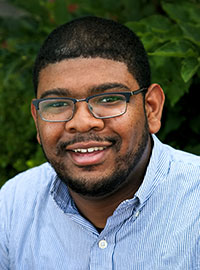
Reginald McGee earned a B.S. in mathematical sciences from Florida A&M University and an M.S. and Ph.D. in mathematics from Purdue University. Prior to Holy Cross, he completed his postdoctoral fellowship at the NSF Mathematical Biosciences Institute and taught at The Ohio State University.
What excites you most about joining the faculty at Holy Cross?
Holy Cross strikes me as a positive, supportive and welcoming community during both my campus interview and a colloquium visit in 2016. I also had a gut feeling that the other new faculty hires would all be really cool.
How do you see your work interacting with the world?
I apply mathematics to problems in biology, particularly cancer immunology. My research is directed at building mathematical models and developing approaches for analyzing biomedical data to assist collaborators in clinical research.
Ryan Mruczek, assistant professor of psychology
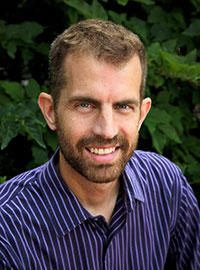
Ryan Mruczek earned a B.S. in neuroscience from the University of Rochester and a Ph.D. in neuroscience from Brown University. Prior to Holy Cross, he completed a postdoctoral research fellowship at Princeton University, was a research scientist at the University of Nevada, Reno, and taught at Swarthmore College and Worcester State University.
What excites you most about joining the faculty at Holy Cross?
I was specifically drawn to Holy Cross' commitment to building a collaborative learning environment for all its members — students, faculty and employees alike. The psychology department's emphasis on meaningful student research experiences was also very important to me. These values mirror my own ideals with respect to an undergraduate liberal arts education. I look forward to the opportunity to work closely with students in the classroom and in my laboratory.
How do you see your work interacting with the world?
My research focuses on object vision — how we see, recognize and interact with objects. Specifically, I am interested in how networks of neurons in the brain encode information about the world around us. Our brains are limited in their capacity to acquire and process sensory information, and these limitations can lead to biases in our perceptions and decisions. Thus, these questions are fundamental to how we perceive and interact with others and with our environment.
Ke Ren, assistant professor of history
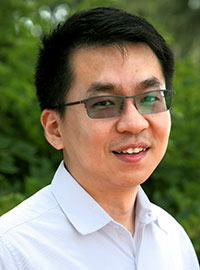
Ke Ren earned a B.A. in history and economics from the University of California, Berkeley and an M.A. and Ph.D. in history from Johns Hopkins University. Prior to Holy Cross, he taught at Indiana University, South Bend and Bates College. He was a postdoctoral teaching fellow in the history department at Holy Cross from 2016 to 2018.
Why did you choose to become a faculty member at Holy Cross?
I chose to become a tenure-track faculty member at Holy Cross after a rewarding two years here as a postdoctoral teaching fellow. During that time, I developed a great appreciation for the cross-disciplinary liberal arts environment cultivated at the College as well as for the support and generosity of my colleagues here in the history department and Asian Studies program. Of course, I have also developed a fondness for the diligence and enthusiasm of the students here!
How do you see your work interacting with the world?
Both my teaching and my research are concerned with China's evolving place in the world. In my research and writing, I work on Chinese diplomats, writers, travelers and activists who have mediated between East and West, reinvented their own cultural identities in the process, as well as the transnational movements and networks they joined in the late 19th- and early to mid-20th centuries. In my teaching, I also emphasize the importance of understanding Chinese and East Asian history in international contexts. I hope that a deeper appreciation and critical understanding of this kind of cosmopolitanism and cross-cultural interaction can help enrich our thinking and our choices around issues of diversity, dialogue and identity in a globalized world.
Headshot photos by John Buckingham

